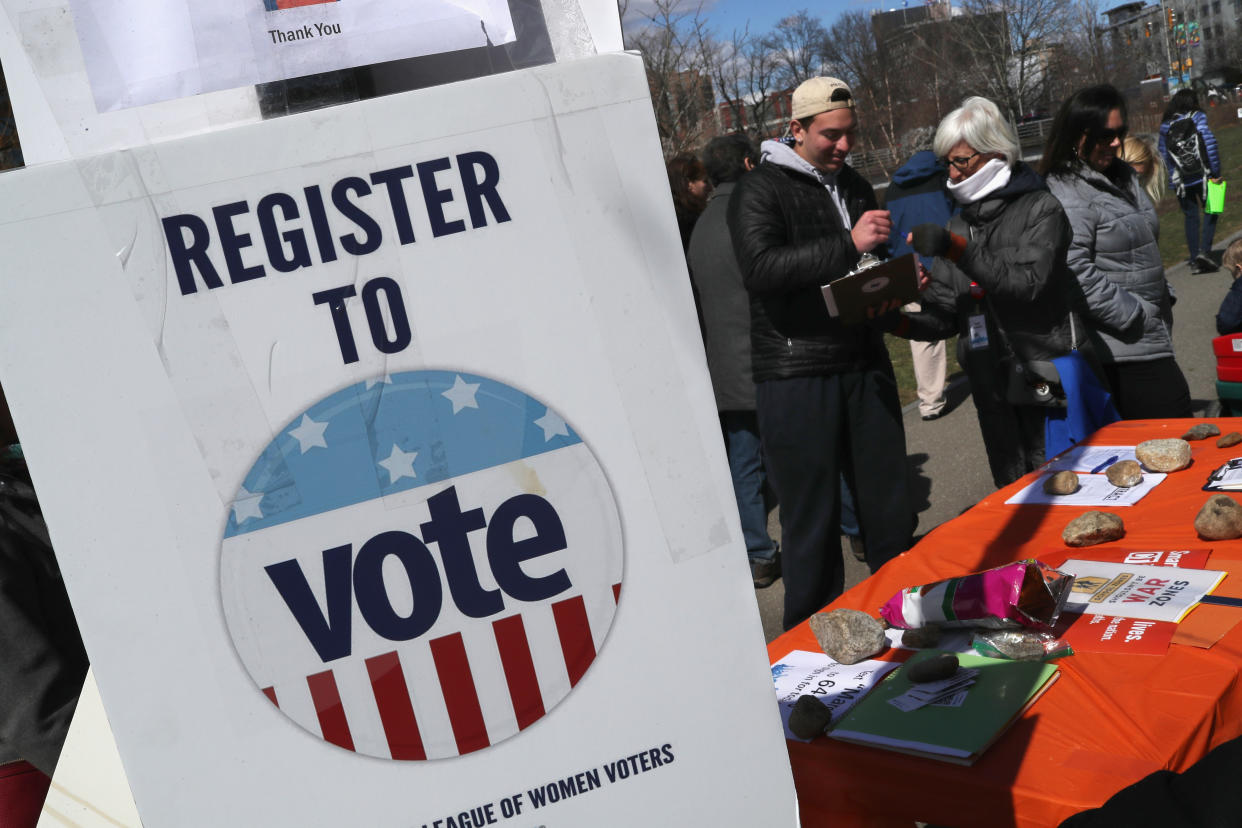Young Parkland voters' ballots rejected at higher rate than state average during midterm elections

The mass shooting that occurred in February 2018 at Marjory Stoneman Douglas High left 17 people dead, but the tragedy also inspired many young people, especially those in Parkland, Fla., to fight for common sense gun laws. At the 800 March for Our Lives events that took place around the world, people were encouraged to register to vote to have their voices heard.
According to the Washington Post, however, young Parkland voters’ mail-in-ballots were rejected during the 2018 midterms at a much higher rate than average in the state.
Daniel Smith, chairman of the political science department at the University of Florida, discovered through the state’s open-source voting file that 15 percent of Parkland voters between ages 18 and 21 had their mail-in ballot rejected. Meanwhile, the entire state of Florida saw only 5.4 percent of college-age voters’ mail-in ballots rejected.
“If you are voting in Florida, and you are young in Florida, you have a good chance of your ballot not being accepted,” Smith told the news outlet. “Imagine going to the ATM, and every 10 times you go, instead of spitting out your money, they take it or they lose it.”
While a spokesman for the Broward County Supervisor of Elections could not comment on Smith’s findings, “unless and until” the office reviewed his data, the office did find a countywide rejection rate of 18-to-21 voters that was “half” of Smith’s reported 5.4 percent. They report a rejection rate of 2.8 percent.
Florida has an infamously strict mail-in voting system. Whereas other states’ mail-in ballots are accepted as long as they are postmarked by election day, Florida must receive a mail-in ballot before election day ends. On top of that, Florida law states that election officials must compare the signature on a mail-in ballot to the signature on the voter’s registration form. If it is deemed not to be a match, the ballot is rejected. While voters can file an affidavit, they rarely have enough time to rectify the problem before the deadline of election day.
The Florida chapter of the ACLU shared in a September 2018 report that young people and people of color were more likely to have their absentee ballots rejected than older, white voters.
“With this revealing information, we need to work towards ensuring all Florida voters’ ballots are counted regardless of the method they choose to vote,” Daniel Smith, PhD, chair of the department of political science at the University of Florida, and the principal author of the report, said.
“They kept telling us that voting is going to be the way we can make a change,” Reagan Edgren, 19, told the Post. “But when they don’t allow our votes to be counted, they are essentially saying we don’t get a voice.”
Read more from Yahoo Lifestyle:
Delta addresses allegations that actor Gary Owen’s wife was racially profiled by a ticket agent
Ali Fedotowsky gets real about belly 10 months postpartum: ‘I actually kind of like my loose skin’
Michigan sorority apologizes for balloon popping that sparked false active-shooter alert
Follow us on Instagram, Facebook, and Twitter for nonstop inspiration delivered fresh to your feed, every day.
Want daily pop culture news delivered to your inbox? Sign up here for Yahoo Entertainment & Lifestyle’s newsletter.

